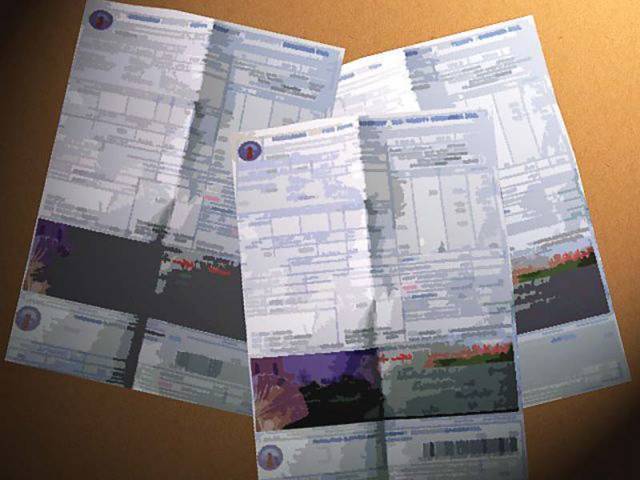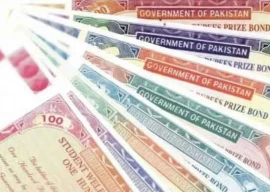
There are complaints from the consumers that the staff of inefficient power distribution companies is sending bills higher than their actual electricity consumption in a month. Even the regulator, National Electric Power Regulatory Authority, seems helpless in curbing this practice.
Consumers of the Islamabad Electric Supply Company (Iesco), which is believed to be the most efficient power distribution company with its tariff being applied to all distribution companies, are also facing a hard time. These consumers running into thousands are receiving estimated power bills, instead of ones based on actual consumption, every month.
Though the Ministry of Water and Power has directed Iesco and other companies to take the picture of meter at the time of taking monthly reading, their staff is pasting fake snaps on the electricity bills.
“This is the state of affairs at Iesco and you can imagine what will be going on in other distribution companies,” an official said, adding the company employees tasked with taking the reading of meters never visited the premises and sent estimated bills.
“The bills carry an inflated figure and sometimes the monthly bill is equal to the annual consumption,” he said.
This shows that honest consumers are being forced to pay the cost of power theft and inefficiency of the bureaucracy. Even they are paying the bad debts of power companies, though they clear their bills regularly and do not default on payments.
The disclosure about the recovery of debt was made in a meeting of the Economic Coordination Committee (ECC) on April 4.
The ECC was told that in a huddle on January 20, 2012 the committee had approved the grant of sovereign guarantees by the Finance Division for a Rs160-billion term financing facility for the power sector.
According to the terms and conditions approved by the Finance Division, a syndicated term financing agreement amounting to Rs136.454 billion was signed by Power Holding Private Limited (PHPL) and different banks on February 21, 2012. Apart from this, a bridge financing agreement worth Rs6.069 billion was reached between PHPL and Bank Alfalah on March 9, 2012. Later, Finance Minister and ECC Chairman Ishaq Dar approved conversion of the Rs6.069 billion bridge financing into a five-year term financing facility, which came into effect on May 31, 2013.
The ECC was told that payments to cover the mark-up and the principal were made from the collection made by the distribution companies from the consumers.
Since the execution of the facility, the Central Power Purchasing Agency had released Rs2.53 billion for paying mark-up to Bank Alfalah from the cash flow of the power sector. The grace period of two years had also ended.
The payment of quarterly installments of the principal amount had become due since October 15, 2015 and it may adversely affect liquidity of the power sector.
Bank Alfalah agreed to extend the grace period from two to four years and consequently the facility would be extended up to seven years while other terms and conditions would remain the same. The ECC approved the proposal.
Published in The Express Tribune, April 17th, 2016.
Like Business on Facebook, follow @TribuneBiz on Twitter to stay informed and join in the conversation.

1732530816-0/BeFunky-collage-(88)1732530816-0-165x106.webp)
1720848500-0/Eminem-and-his-daugher-Hallie-(1)1720848500-0-165x106.webp)




1732486769-0/image-(8)1732486769-0-270x192.webp)









COMMENTS
Comments are moderated and generally will be posted if they are on-topic and not abusive.
For more information, please see our Comments FAQ